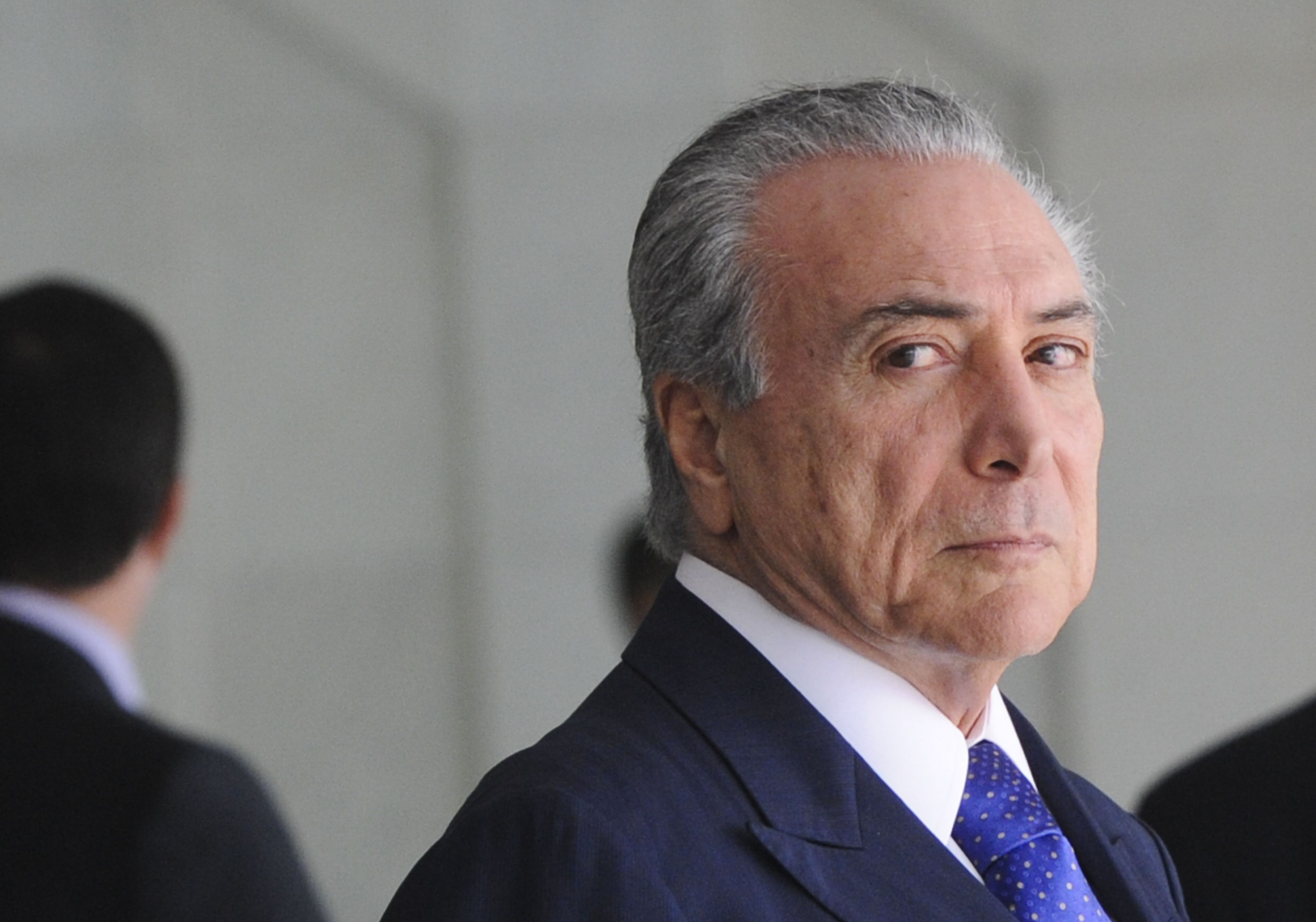SAO PAULO/RIO DE JANEIRO, (Reuters) – Brazil’s former President Michel Temer was arrested today in an investigation of alleged graft in the construction of a nuclear power plant, prosecutors said, threatening to delay debate over the government’s ambitious fiscal reforms.
Temer was president from 2016 to 2018, taking office after the impeachment of Dilma Rousseff, for whom he served as vice president for six years. His lawyer confirmed he was arrested in Sao Paulo, but declined to comment on the reasons.
Prosecutors alleged that Temer was the leader of a “criminal organization” that diverted 1.8 billion reais ($471.62 million) in funds as part of a scheme related to the Angra nuclear power plant complex on the Rio de Janeiro coast. Brazil’s currency slipped 1.4 percent and the Bovespa stock index fell 2.5 percent, as the arrest diverted the attention of Congress just as it was taking up a bill to overhaul the social security system.

“This could slow down the pension reform process, which is already disappointing,” Danilo Gennari, partner at Brasilia-based political consultancy DRG. “Temer’s arrest will not help the climate in Congress.”
Investigators also confirmed the arrest of Temer’s former minister and confidant Wellington Moreira Franco, who is married to the mother-in-law of Rodrigo Maia, the speaker of the lower house of Congress and a chief proponent of pension reform.
Temer and Moreira Franco have repeatedly denied previous accusations of wrongdoing. Maia was not immediately available for comment.
Brazil’s sweeping “Car Wash” probe has uncovered what U.S. prosecutors called the world’s largest graft scheme, starting with political bribery involving oil company Petroleo Brasileiro SA and spreading to other sectors and public works.
Over 150 powerful politicians and businessmen have been convicted in relation to the investigation, which has reshaped the country’s political and business landscapes.
Temer is the second former president to be arrested. Ex-leader Luiz Inacio Lula da Silva is in jail serving over 12 years on a corruption conviction.
Voter anger over long-running graft fueled the ascent of President Jair Bolsonaro, a far-right politician who served 30 years as a fringe congressmen, but rose to power on the back of pledges to end graft in Brasilia.
Bolsonaro took office on Jan. 1, but since then federal police have started a money laundering investigation into his son, Senator Flavio Bolsonaro, tarnishing his young presidency.
Angra 3, Brazil’s third Brazil’s nuclear power plant complex, has long been on the radar of graft investigators.
In 2016, Othon Luiz Pinheiro da Silva, the former chief executive of state nuclear power company Eletronuclear, was sentenced to 43 years in prison on a corruption conviction.
Silva colluded with executives at Brazilian engineering firms Andrade Gutierrez and Engevix to receive kickbacks in return for overbilling on the Angra 3 construction, court records show.
Temer, who left office with an approval rating of 7 percent, had not been formally cited in the case.
However, he was hit with other corruption charges during his presidency that were blocked by allies in the lower house of Congress, which must authorize charges against a sitting president.
Temer, 78, previously led the MDB, a regionally fragmented party with no consistent ideology that for two decades held the most seats in Congress, making it a major power broker.
The son of Lebanese immigrants who arrived in Brazil in 1925, Temer was the youngest of eight children and began his political career in the 1960s as an aide in Sao Paulo state’s education secretariat. The governor at the time, Ademar de Barros, one of the first politicians to inspire the popular Brazilian saying about their leaders: “He steals, but he gets things done.”









